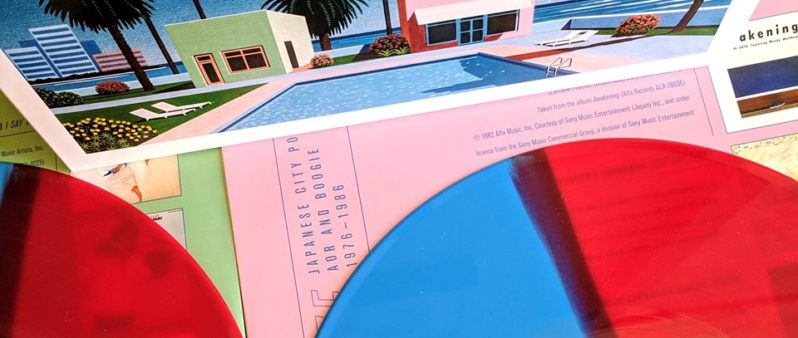
The Resurgence of the 1980s J-POP Genre – Japanese City Pop
The 1980 Japanese musical genre known as “City Pop” had been slowly enjoying a resurgence in recent years. However, late last year, a YouTube recommendation algorithm started serving up 1984’s “Plastic Love” by Mariya Takeuchi to its listeners. The irrepressible song went viral and millions of people started digging deeper into the Japanese City Pop genre.
What is City Pop?
City Pop is a music genre popular in the late 1970s and early 1980s Japan. It is pop music that has a sophisticated urban image influenced by disco, soul, and R&B.
While current J-POP lyrics tend to be direct expressions of actions or emotions, City Pop’s lyrics use metaphors that make the imagination expand, employing words such as “town”, “drive” and “resort”, in an urban setting.
Listen to Japanese City Pop – Playlist
To further appreciate the genre, check out our Japanese City Pop Playlist on YouTube Music!
For the younger generation who have never listened to this type of music, it is perceived as a fresh, yet somehow familiar sound. It’s also appealing for its optimism and lack of political messages.
However, for many Japanese who originally listened to City Pop back in the 80s, it makes a negative impression recalling the vanity of the economic Bubble Era.
What was going on in 1980s Japan?
To understand this, we need to know about the Bubble Ki (バブル期 : “Economic Bubble Period”). This was the end of Japan’s tech-fueled economic growth period at the end of the 1980s. The bubble burst in 1991.
During the bubble, the new wealthy Japanese leisure class spent lavishly, enjoying their fortunes without worry about the future.
Contemporary TV dramas depicting men and women living in the city were called “trendy drama”* (トレンディドラマ: no translation needed!) and quickly became popular. Many City Pop songs were used in these shows.
The related word getsu ku (月9: “Monday 9pm”) is still used today. The most popular TV shows of the season are aired on Monday evenings.
Bubble Sedai – The Bubble Generation
The lives of Bubble Sedai* (バブル世代 : “Bubble Generation”), the young people who graduated from college and started working in the bubble era can be seen in these “trendy dramas”.
The Bubble Sedai owned manshons (マンション : “condominiums”) and partied every night. Popular women might have had asshii-kun* (アッシー君 : a boyfriend used as a chauffeur – ashi (足) means foot.)
Or a messhii-kun* (メッシーくん: a boyfriend kept around because he paid for meals – meshi (飯) means meal.) It was even said that there were people waving 10,000 yen bills on the street just to catch a cab.
Here is Japanese comedian Nora Hirano portraying a woman in the bubble era. Her hairstyle in the video below is called One Ren Sauvage* (ワンレンソバージュ : “One length cut wavy hair”)
Nobody wanted to be called dasai* (ダサい : “not cool”, usually referring to someone’s outfit) or nekura (ネクラ : “gloomy”). The Otaku culture of nerdy, obsessive anime fans, is considered cool today, but in the 80s it was dasai and nekura, and was thoroughly looked down on.
By the early 90s, the financial bubble burst and the Japanese economy tanked. The standard of living in Japan went downhill. Looking back at this excessively wasteful and arrogant culture and time is painful for many Japanese who experienced both eras.
* These words are only used when people talk about the Bubble Era.
But City Pop was indeed good music.
On the other hand, Japanese society in the 80s invested in culture. Money poured into the arts, sports, social activities, etc., and the music industry was bustling.
Young Japanese people in that era enjoyed a materially rich, sophisticated urban life and that is probably why City Pop appeals to many listeners.
Listen to some City Pop and drive on a highway at night! It will bring you back to the positive vibes of 1980s Japan.
Want to Sing Along? Get Started With the Pimsleur App!
Try the Full Pimsleur Japanese Premium Course for 7 days Free. Only $19.95/month thereafter. New low subscription price!
Click Here for a Free 7-Day Trial!

1 Comment for "Japanese City Pop Music: The Newest Internet Phenomenon?"